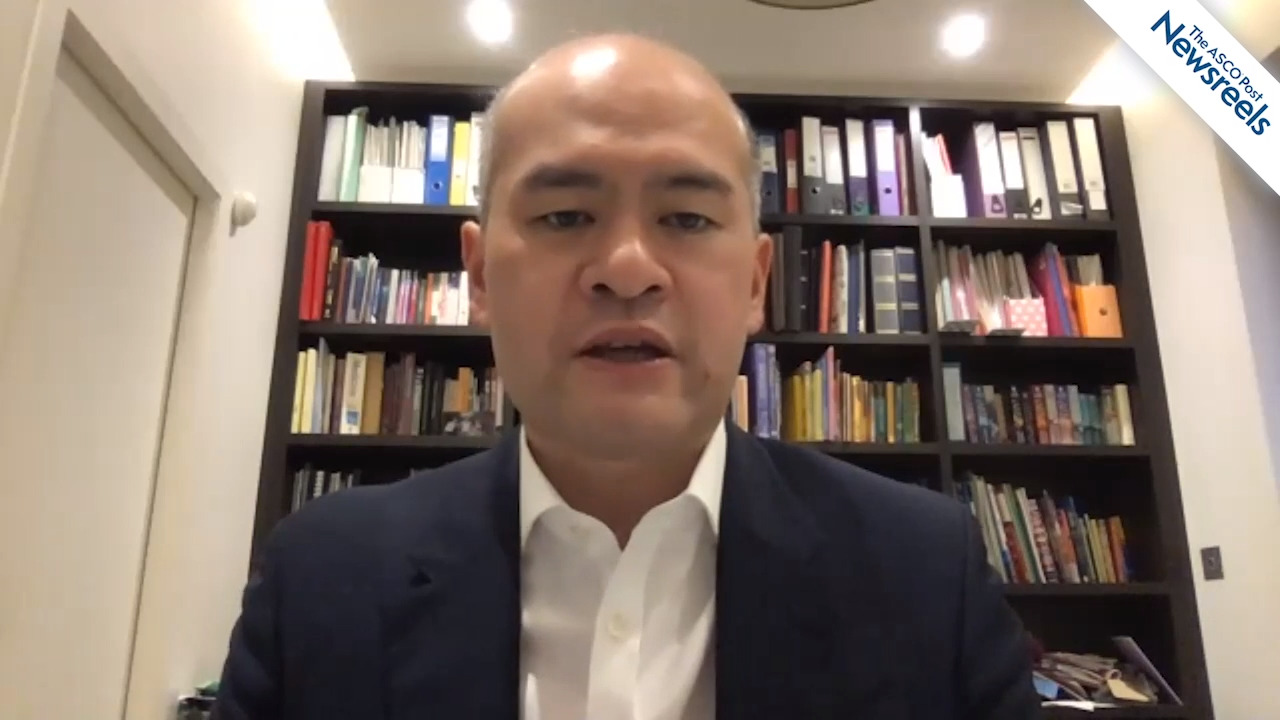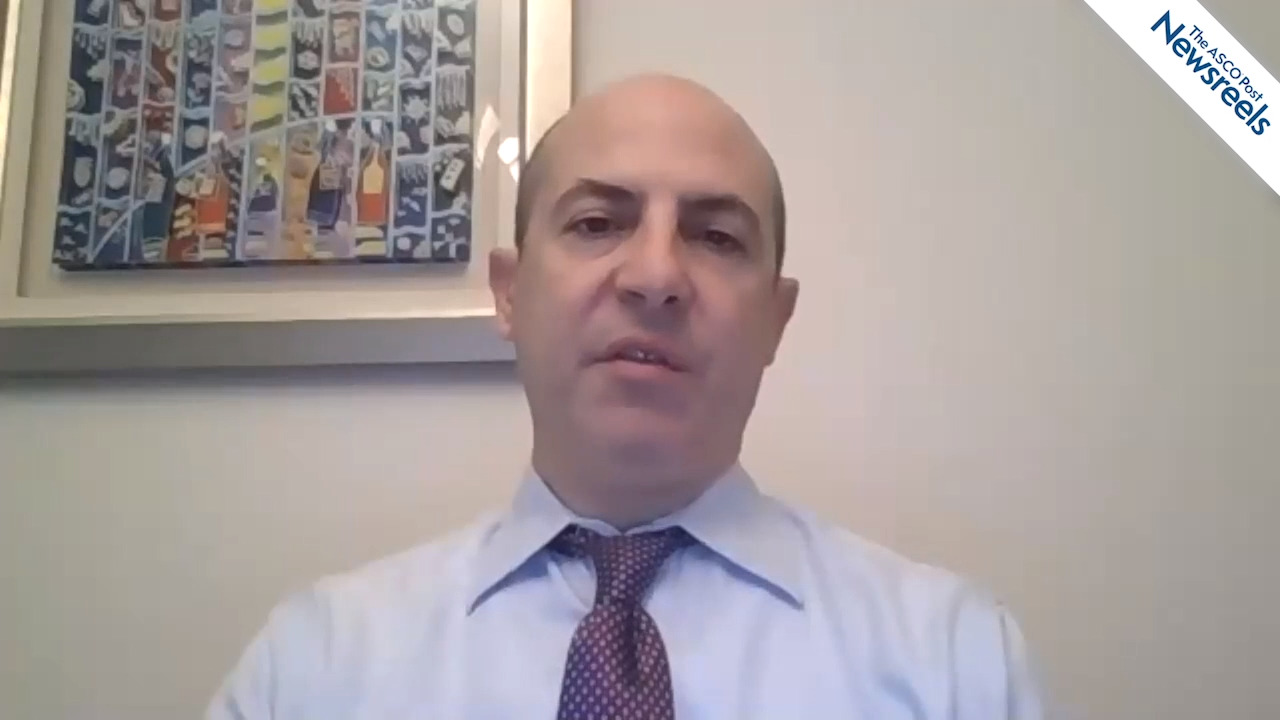Milind M. Javle, MD, on Cholangiocarcinoma: Treatment With Infigratinib
2021 Gastrointestinal Cancers Symposium
Milind M. Javle, MD, of The University of Texas MD Anderson Cancer Center, discusses phase II study results showing that the novel tyrosine kinase inhibitor infigratinib may prove to be effective in treating patients with advanced cholangiocarcinoma harboring an FGFR2 gene fusion or rearrangement (Abstract 265).
The ASCO Post Staff
Kai-Keen Shiu, MD, PhD, of the University College Hospital NHS Foundation Trust - London, discusses an interim analysis of PFS 2 results (defined as time from random assignment to progression on the next line of therapy or death) from the phase III KEYNOTE-177 trial. This study has already shown that first-line pembrolizumab provides a clinically meaningful and statistically significant improvement in PFS compared with chemotherapy in patients with microsatellite instability–high metastatic colorectal cancer (Abstract 6).
The ASCO Post Staff
Matthew H.G. Katz, MD, of The University of Texas MD Anderson Cancer Center, discusses findings from the Alliance A021501 study, which showed that administering mFOLFIRINOX before surgery was associated with a favorable overall survival rate relative to historical data in patients with borderline resectable adenocarcinoma of the pancreas (Abstract 377).
The ASCO Post Staff
Zev A. Wainberg, MD, of UCLA Medical Center, discusses phase II results from the FIGHT study, which combined bemarituzumab with modified FOLFOX6 in first-line treatment of advanced gastric/gastroesophageal junction adenocarcinoma. This is reportedly the first randomized trial of any FGFR inhibitor, validating this target in gastric cancer (Abstract 160).
The ASCO Post Staff
Andrew X. Zhu, MD, PhD, of Massachusetts General Hospital, discusses final results from the phase III ClarIDHy study, which showed that ivosidenib may improve overall and progression-free survival compared with placebo in patients with previously treated cholangiocarcinoma and an isocitrate dehydrogenase 1 mutation (Abstract 266).
The ASCO Post Staff
Thierry André, MD, of Hôpital Saint-Antoine, discusses results from the GARNET study, which showed that dostarlimab, an anti–PD-1 antibody, demonstrated durable antitumor activity in patients with mismatch repair–deficient colorectal and noncolorectal solid tumors. No new safety signals were detected, and most treatment-related adverse events were of a low grade (Abstract 9).





